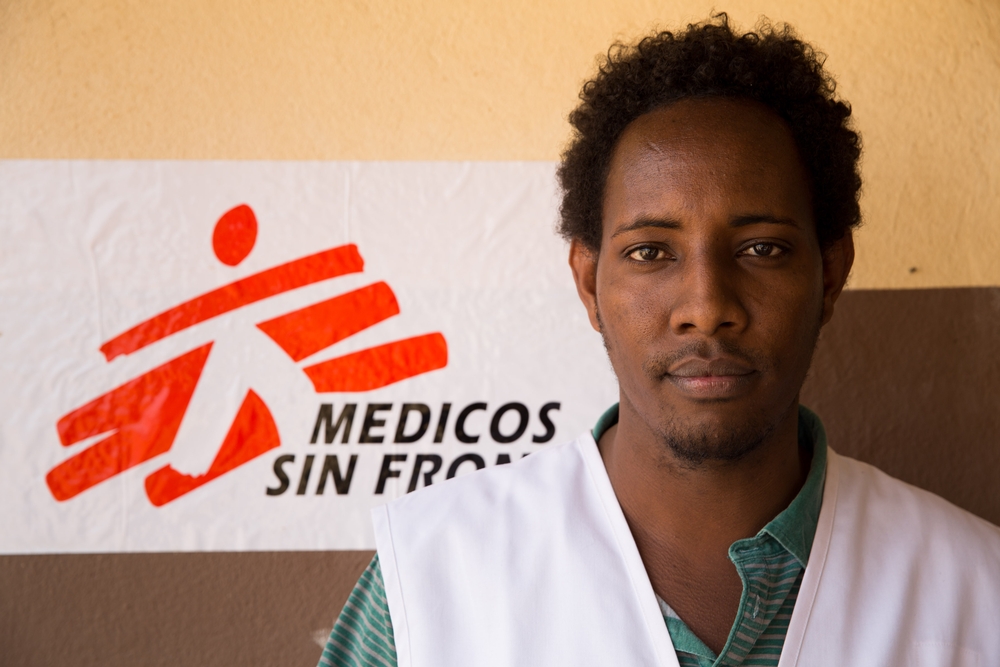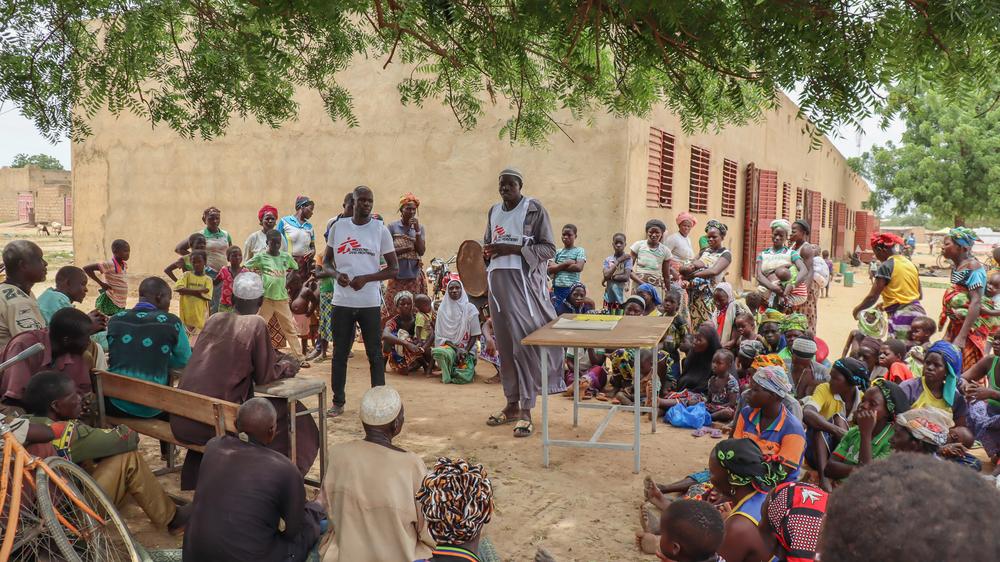
Access to healthcare is now a major concern, as facilities and even health workers themselves have been attacked, forcing many to close. As people are displaced, they leave areas where health services were once available and can be at risk of violence if they travel to access health facilities.
I was working mainly in the East of the country, where the main focus of MSF’s work is to increase access to healthcare. In that area we support two main hospitals as well as community health programmes in remote villages. Our teams treat victims of violence, sexual violence and the war wounded. As well as helping people to cope with the physical scars of violence, we also provide care for the psychological scars through our mental health work.
We respond to disease outbreaks such as meningitis and measles which have all become more frequent as routine vaccinations have been interrupted, causing children get sick and die due to preventable diseases, often in large numbers.
Given the levels of displacement we also provide people with other basic services which are lacking such as water, shelter and other relief items such as cooking and hygiene kits.
When COVID-19 arrived in the country in March, our teams were able to spring into action to help to control it. We set up three treatment centres; in the capital, Ougadougou and in the East of the country, which we handed over to the Ministry of Health (MoH) to run, and another in the West of the country, which we ran with the MoH.
We also went to health facilities to train staff on the risks of COVID-19 and how to care for patients affected by it. Healthcare staff are on the frontline and face the biggest risks. We also provided them with Personal Protective Equipment if they needed it.
We also accelerated our work to provide people with access to clean water – so important in a disease outbreak - trucking it to places where it was lacking and drilling boreholes.
But it wasn’t just COVID-19 that we had to respond to. In a country like Burkina Faso, other life threatening health problems still emerge during a pandemic. In the South East of the country we had a large measles outbreak which we responded to by organising a mass vaccination for 40,000 children. It was challenging, given that we had to respect the precautions to prevent the spread of COVID-19 but we managed it.
Despite all these challenges that people in Burkina Faso face, what struck me was their resilience. You can visit a remote village where you see so many problems, but still people’s hope is strong. It is really inspiring and motivated us to keep going.
